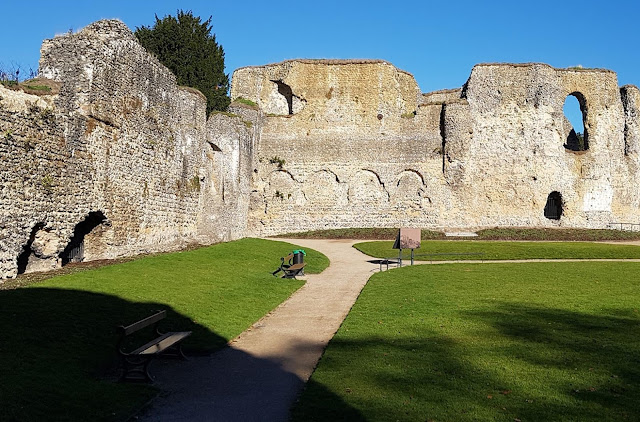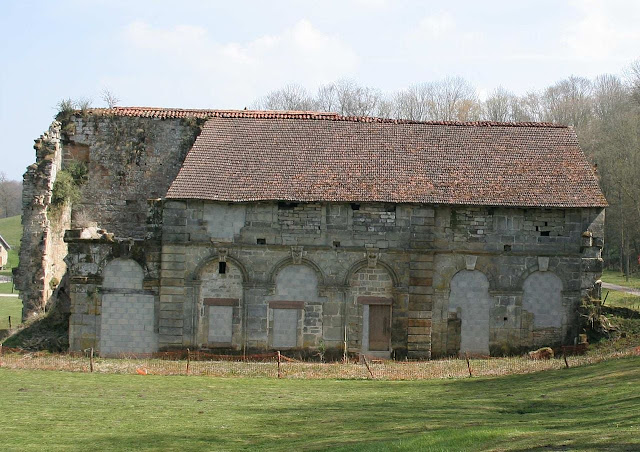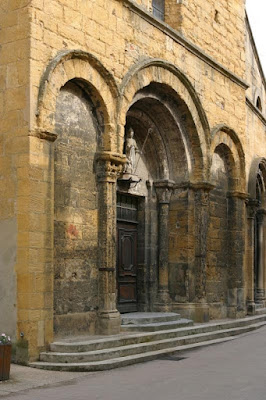Reading Abbey

Another connection between Burgundy and England lies in the early history of the royal and Cluniac foundation of Reading Abbey. The abbey was founded by King Henry I, and the community started with a group of monks from Cluny (plus some from its daughter house at Lewes Priory), under Hugh of Amiens as the first abbot, in 1121. Abbot Hugh was then elected as Archbishop of Rouen in King Henry's Duchy of Normandy in 1129, and it was he who ministered to the King as he lay dying of "a surfeit of lampreys" in Normandy in 1135: the king's body was embalmed at Rouen and brought back to be buried at Reading Abbey. Archbishop Hugh spent a lot of his time in England, and was at the Council of Oxford in 1139, summoned by Henry of Blois, Bishop of Winchester and himself also a former monk of Cluny. When the great abbey church at Reading was finally completed, it was longer than Westminster Abbey and comparable in size and grandeur with Gloucester or Ely. Reading Abbey church wa...

